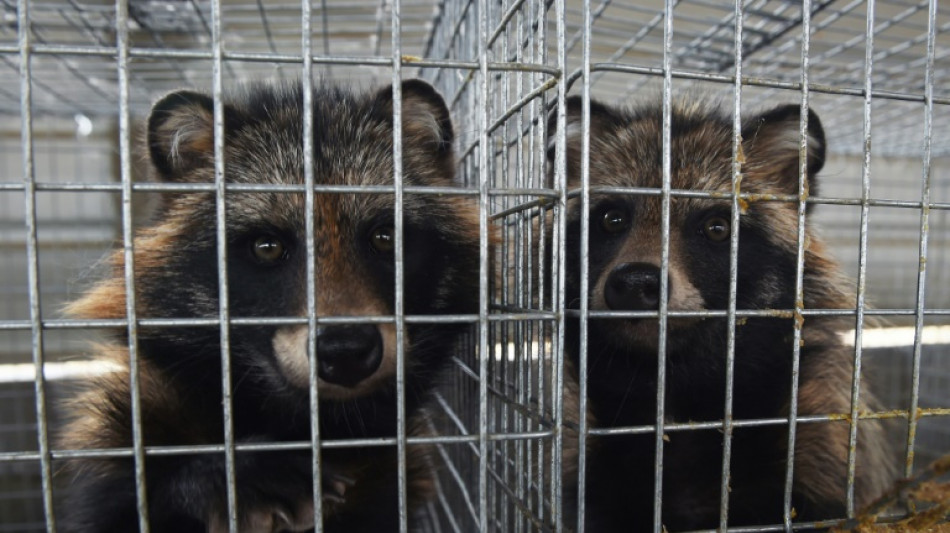
-
 Australia all out for 152 as England take charge of 4th Ashes Test
Australia all out for 152 as England take charge of 4th Ashes Test
-
Boys recount 'torment' at hands of armed rebels in DR Congo

-
 Inside Chernobyl, Ukraine scrambles to repair radiation shield
Inside Chernobyl, Ukraine scrambles to repair radiation shield
-
Bondi victims honoured as Sydney-Hobart race sets sail

-
 North Korea's Kim orders factories to make more missiles in 2026
North Korea's Kim orders factories to make more missiles in 2026
-
Palladino's Atalanta on the up as Serie A leaders Inter visit

-
 Hooked on the claw: how crane games conquered Japan's arcades
Hooked on the claw: how crane games conquered Japan's arcades
-
Shanghai's elderly waltz back to the past at lunchtime dance halls

-
 Japan govt approves record 122 trillion yen budget
Japan govt approves record 122 trillion yen budget
-
US launches Christmas Day strikes on IS targets in Nigeria

-
 Australia reeling on 72-4 at lunch as England strike in 4th Ashes Test
Australia reeling on 72-4 at lunch as England strike in 4th Ashes Test
-
Too hot to handle? Searing heat looming over 2026 World Cup

-
 Packers clinch NFL playoff spot as Lions lose to Vikings
Packers clinch NFL playoff spot as Lions lose to Vikings
-
Guinea's presidential candidates hold final rallies before Sunday's vote

-
 Eon Prime Intelligent Alliance Office Unveils New Brand Identity and Completes Website Upgrade
Eon Prime Intelligent Alliance Office Unveils New Brand Identity and Completes Website Upgrade
-
Villa face Chelsea test as Premier League title race heats up

-
 Spurs extend domination of NBA-best Thunder
Spurs extend domination of NBA-best Thunder
-
Malaysia's Najib to face verdict in mega 1MDB graft trial

-
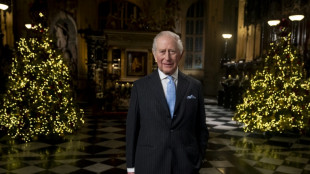 King Charles calls for 'reconciliation' in Christmas speech
King Charles calls for 'reconciliation' in Christmas speech
-
Brazil's jailed ex-president Bolsonaro undergoes 'successful' surgery

-
 UK tech campaigner sues Trump administration over US sanctions
UK tech campaigner sues Trump administration over US sanctions
-
New Anglican leader says immigration debate dividing UK

-
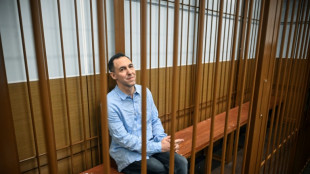 Russia says made 'proposal' to France over jailed researcher
Russia says made 'proposal' to France over jailed researcher
-
Bangladesh PM hopeful Rahman returns from exile ahead of polls

-
 Police suspect suicide bomber behind Nigeria's deadly mosque blast
Police suspect suicide bomber behind Nigeria's deadly mosque blast
-
AFCON organisers allowing fans in for free to fill empty stands: source

-
 Mali coach Saintfiet hits out at European clubs, FIFA over AFCON changes
Mali coach Saintfiet hits out at European clubs, FIFA over AFCON changes
-
Last Christians gather in ruins of Turkey's quake-hit Antakya

-
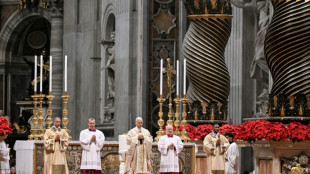 Pope Leo condemns 'open wounds' of war in first Christmas homily
Pope Leo condemns 'open wounds' of war in first Christmas homily
-
Mogadishu votes in first local elections in decades under tight security
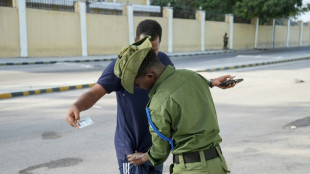
-
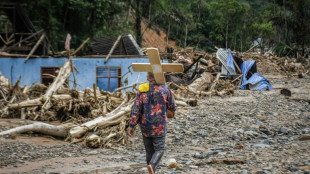 'Starting anew': Indonesians in disaster-struck Sumatra hold Christmas mass
'Starting anew': Indonesians in disaster-struck Sumatra hold Christmas mass
-
Cambodian PM's wife attends funerals of soldiers killed in Thai border clashes

-
 Prime minister hopeful Tarique Rahman arrives in Bangladesh: party
Prime minister hopeful Tarique Rahman arrives in Bangladesh: party
-
Pacific archipelago Palau agrees to take migrants from US

-
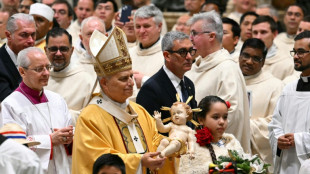 Pope Leo expected to call for peace during first Christmas blessing
Pope Leo expected to call for peace during first Christmas blessing
-
Australia opts for all-pace attack in fourth Ashes Test
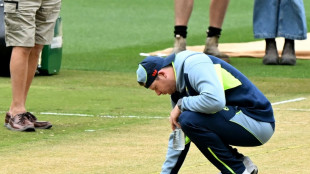
-
 'We hold onto one another and keep fighting,' says wife of jailed Istanbul mayor
'We hold onto one another and keep fighting,' says wife of jailed Istanbul mayor
-
North Korea's Kim visits nuclear subs as Putin hails 'invincible' bond

-
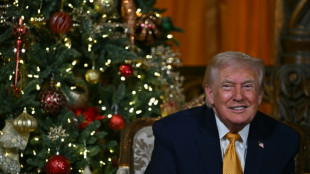 Trump takes Christmas Eve shot at 'radical left scum'
Trump takes Christmas Eve shot at 'radical left scum'
-
3 Factors That Affect the Cost of Dentures in San Antonio, TX

-
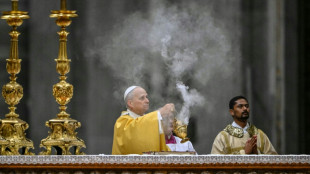 Leo XIV celebrates first Christmas as pope
Leo XIV celebrates first Christmas as pope
-
Diallo and Mahrez strike at AFCON as Ivory Coast, Algeria win

-
 'At your service!' Nasry Asfura becomes Honduran president-elect
'At your service!' Nasry Asfura becomes Honduran president-elect
-
Trump-backed Nasry Asfura declared winner of Honduras presidency

-
 Diallo strikes to give AFCON holders Ivory Coast winning start
Diallo strikes to give AFCON holders Ivory Coast winning start
-
Spurs captain Romero facing increased ban after Liverpool red card

-
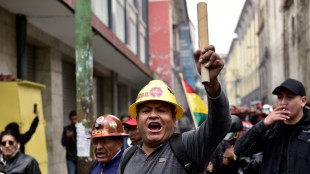 Bolivian miners protest elimination of fuel subsidies
Bolivian miners protest elimination of fuel subsidies
-
A lack of respect? African football bows to pressure with AFCON change

-
 Trump says comedian Colbert should be 'put to sleep'
Trump says comedian Colbert should be 'put to sleep'
-
Mahrez leads Algeria to AFCON cruise against Sudan


New study reinforces theory Covid emerged at Chinese market
A study on the origin of Covid-19 provided new evidence on Thursday supporting the theory that humans first caught the virus from infected animals at a Chinese market in late 2019.
Nearly five years after Covid first emerged, the international community has not been able to determine with certainty exactly where the virus came from.
The first cases were detected in the Chinese city of Wuhan in late 2019, but there have been bitter disputes between proponents of the two main theories.
One is that the virus leaked from a Wuhan lab which studied related viruses, while the other is that people caught Covid from an infected wild animal being sold at a local market.
The scientific community has favoured the latter theory, but the controversy has rumbled on.
The study published in the Cell journal is based on more than 800 samples collected at Wuhan's Huanan Seafood Market, where wild mammals were also believed to have been for sale.
The samples were collected in January 2020 after the market was shuttered, and were not taken directly from animals or people but from the surfaces of stalls selling wildlife, as well as from drains.
From this type of data, which was shared by the Chinese authorities, "we cannot say with certainty whether the animals (at the market) were infected or not," study co-author Florence Debarre told AFP.
However, "our study confirms that there were wild animals at this market at the end of 2019, notably belonging to species such as raccoon dogs and civets," said the evolutionary biologist at France's CNRS research agency.
"And these animals were in the southwest corner of the market, which also happens to be an area where a lot of SARS-CoV-2 virus, which causes Covid-19, was detected."
These small mammals can catch similar viruses to humans, which has made them suspects for serving as an intermediate host between humans and bats, in which SARS-CoV-2 is suspected to have originated.
The presence of these animals at the Huanan market had previously been disputed, despite some photographic evidence and a 2021 study.
- 'Very strong evidence' -
Numerous parts of one stall tested positive for the Covid virus, including "animal carts, a cage, a garbage cart, and a hair/feather removal machine," the study said.
"There was more DNA from mammalian wildlife species in these samples than human DNA," it added.
Mammal DNA was found in the Covid-positive samples from this stall, including from palm civets, bamboo rats and raccoon dogs.
"These data indicate either that the animals present at this stall shed the SARS-CoV-2 detected on the animal equipment or that early unreported human case(s) of Covid-19 shed virus in the exact same location as the detected animals," the study said.
The research also confirms that the "most recent common ancestor" of the Covid virus strain found in the market samples was "genetically identical" to the original pandemic strain.
"This means that the early diversity of the virus is found at the market -- as would be expected if this is the site where it emerged," Debarre explained.
James Wood, an infectious disease epidemiologist at Cambridge University not involved in the research, said the study "provides very strong evidence for wildlife stalls in the Huanan Seafood Market in Wuhan being a hotspot for the emergence of the Covid-19 pandemic."
The research was important because "little or nothing has been done to limit either the live trade in wildlife nor the biodiversity loss or land use changes that are the actual likely drivers of past and future pandemic emergence," he said.
"These aspects are also not included in the draft pandemic treaty" currently being negotiated by countries, he added.
A.Rodriguezv--AMWN


